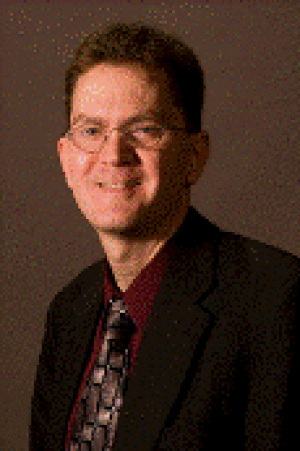Sex Abusers Often Control Victims with Religion
By Mike Tighe
Child sexual abuse takes an often-unrecognized spiritual toll because many predators use religion to hush their victims, says Victor Vieth. Churches and children’s advocates need to acknowledge that influence to thwart abuse and help victims heal, said Vieth, executive director of the National Child Protection Training Center in Winona, Minn. Vieth will advance that position as keynote speaker during a conference titled “Faith, Healing, and Future Work: Creating Partnerships to Promote Child Protection” from 8:30 a.m. to 4 p.m. Friday in the Viterbo University Fine Arts Center. “A child abuser will touch a child and say, ‘See, you enjoyed that as much as I did.’ You’re just as sinful as I am,” Vieth said. In effect, that shames the victim into guilty silence, he said. “A large body of research shows that most, but not all, abusers use religion because it helps them” control the victims, he said. Vieth has headed the training center, located at Winona State University, since its inception in 2003. He said he adopted his advocacy position while dealing with child abuse cases as a prosecutor for 10 years in Watonwan and Cottonwood counties in Minnesota. “Early on in my career, I saw how often abusers use religion to keep children quiet,” he said. He cited a case in which a 12-year-old had alleged that her father had sexually abused her. “When we went into the courtroom, she saw her minister and church elders, and she knew they were there to support her dad,” Vieth said. “She tugged on my suit and whispered in my ear, ‘Does this mean God is against me, too?’” The damage is worse when the abuser is a clergy member, Vieth said. “It has a negative effect on a child’s spirituality,” he said. “They view God differently, and they view a higher power differently.” Emily Dykman, an assistant professor of religious studies at Viterbo who also will speak at the conference, said the gathering will address abuse issues beyond sexual matters. “There is intense spiritual injury in all forms of maltreatment, especially when one’s faith tradition is being used within the context of the abuse,” she said. Many victims pull away from religion, although they often still rely on spirituality to help them heal, and they need help filling the gap, Vieth said. Churches must confront the issue, including speaking against abuse from the pulpit, and parents must talk to their children about it, he said. Faith communities must become more knowledgeable “so they can tag team with health professionals when a child has a spiritual question like, ‘Where was God when Daddy abused me’ or ‘Is it true I’m sinful?’” Vieth said. Abuse violates victims’ dignity, Dykman said, adding, “Churches much commit themselves to rebuilding the dignity of these persons and empower them to work toward wholeness.” Everyone must be involved in combating abuse, Dykman said. “Churches have their formal leadership — that cannot be denied, but each and every person of faith can make a committed effort,” she said. “In many cases, the shame of one’s abuse causes a sense of isolation which can only be overcome by communities that are accepting, loving and compassionate,” she said. Healing requires patience, Dykman said. “We need to give the victim of abuse the time needed to work through their pain and anguish, rather than rushing to an act or expression of forgiveness,” she said. “People are not issues that need to be fixed, but mysteries that need to be unfolded with care and love,” Dykman said. Contact: mtighe@lacrossetribune.com
|
.
Any original material on these pages is copyright © BishopAccountability.org 2004. Reproduce freely with attribution.
